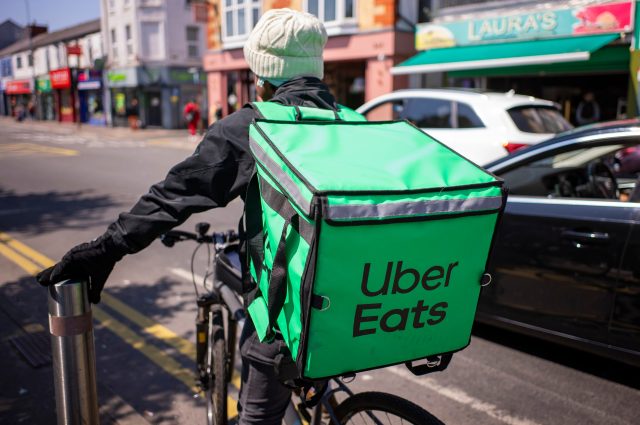At the core of the new rules is also an attempt to clarify whether platform workers are employees entitled to sick pay, holiday pay and pension contributions, or self-employed free agents, who are not.
“If you are completely dependent on an algorithm, a machine, for the organization of work, your breaks, the speed with which you have to deliver things and your vacations, it is very hard to consider yourself self-employed,” Gualmini said. “So you are a worker, you are an employee, and you deserve to have social rights.”
The platform work directive now states that workers should be legally considered as employees if their relationship with the platform paying them meets two of the following five criteria: if the platform allocates their tasks, restricts working hours, limits their earnings; supervises their performance; or imposes rules about their conduct or appearance. Although this won’t mean platform workers become employees overnight, says Aloisi, it should make it easier to challenge their employment status in court. “This is a strong political message when it comes to the problem of misclassification,” he says.
There are similarities between the new rules and Spain’s “rider’s law”, introduced two years ago. In Spain, some platforms tried to avoid re-classifying their workers as employees by making changes to their business model, for instance, suggesting delivery prices to couriers instead of dictating them. Now platforms operating across the EU will also have to change their business models, unless they’re willing to reclassify their workers, says Jovana Karanovic, assistant professor and labor expert at Erasmus University in Rotterdam. “They will try to avoid misclassification because it will increase their costs so much.”
For many, that’s why this deal sets Europe on the right path but does not solve all the platform economy’s problems. “Will there be a way to create a loophole and work the app so that workers are not reclassified? I’m sure,” says Katie Wells, who researches platform workers at Georgetown University in Washington, DC. But policy is iterative, she adds. “It would be hard not to feel optimistic about this move, especially as a person coming from the US, where there is so much distance between what this is offering and what we currently have.”
EU member states can adapt the new rules to their countries’ existing legislation and also set their own penalties if platforms don’t comply. The rules are expected to enter into force in two years. The EU is on a law-making frenzy before the end of the year and before the start of the 2024 election campaign. Last week, the EU agreed on a major set of new rules that will govern the building and use of AI.





















